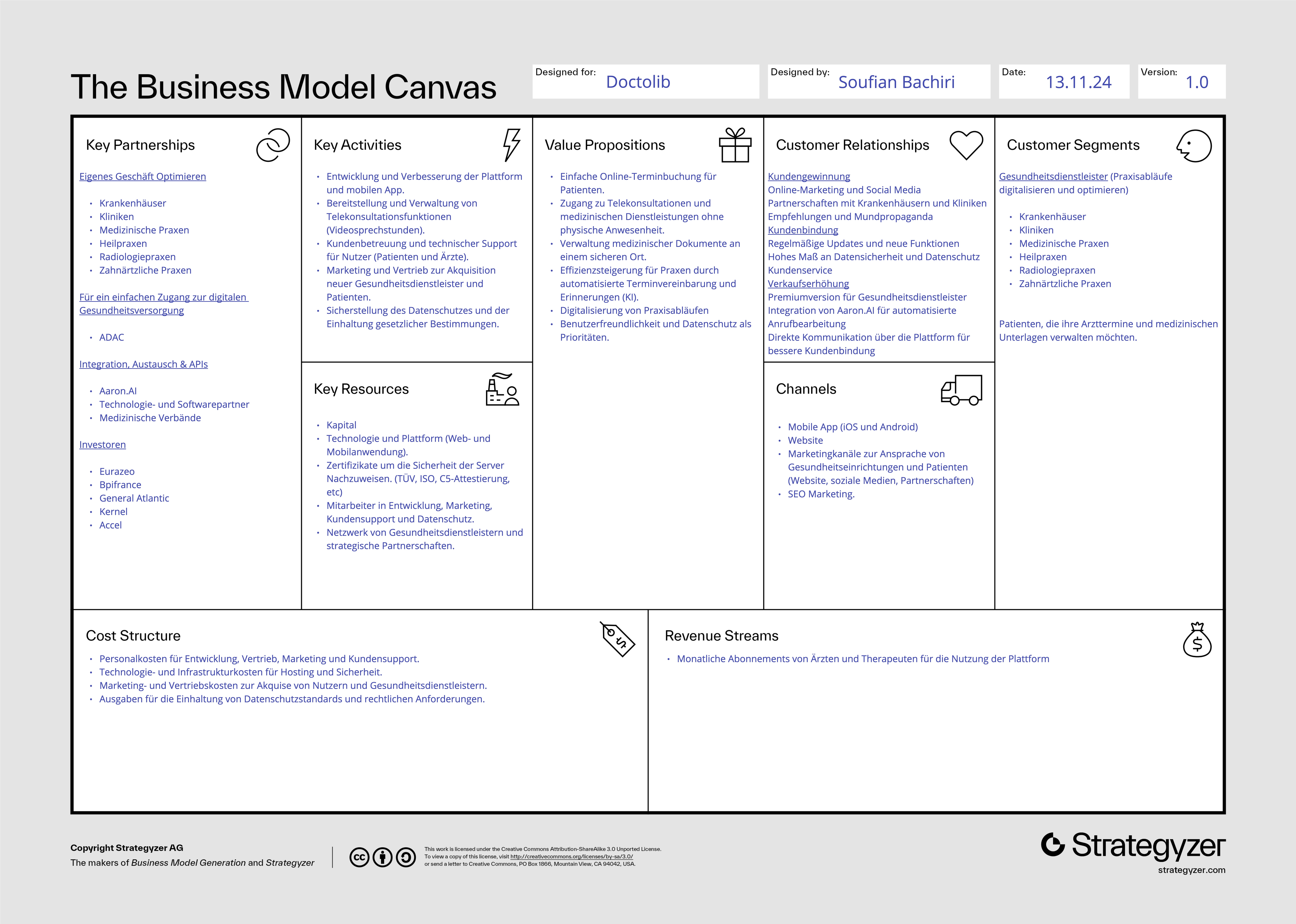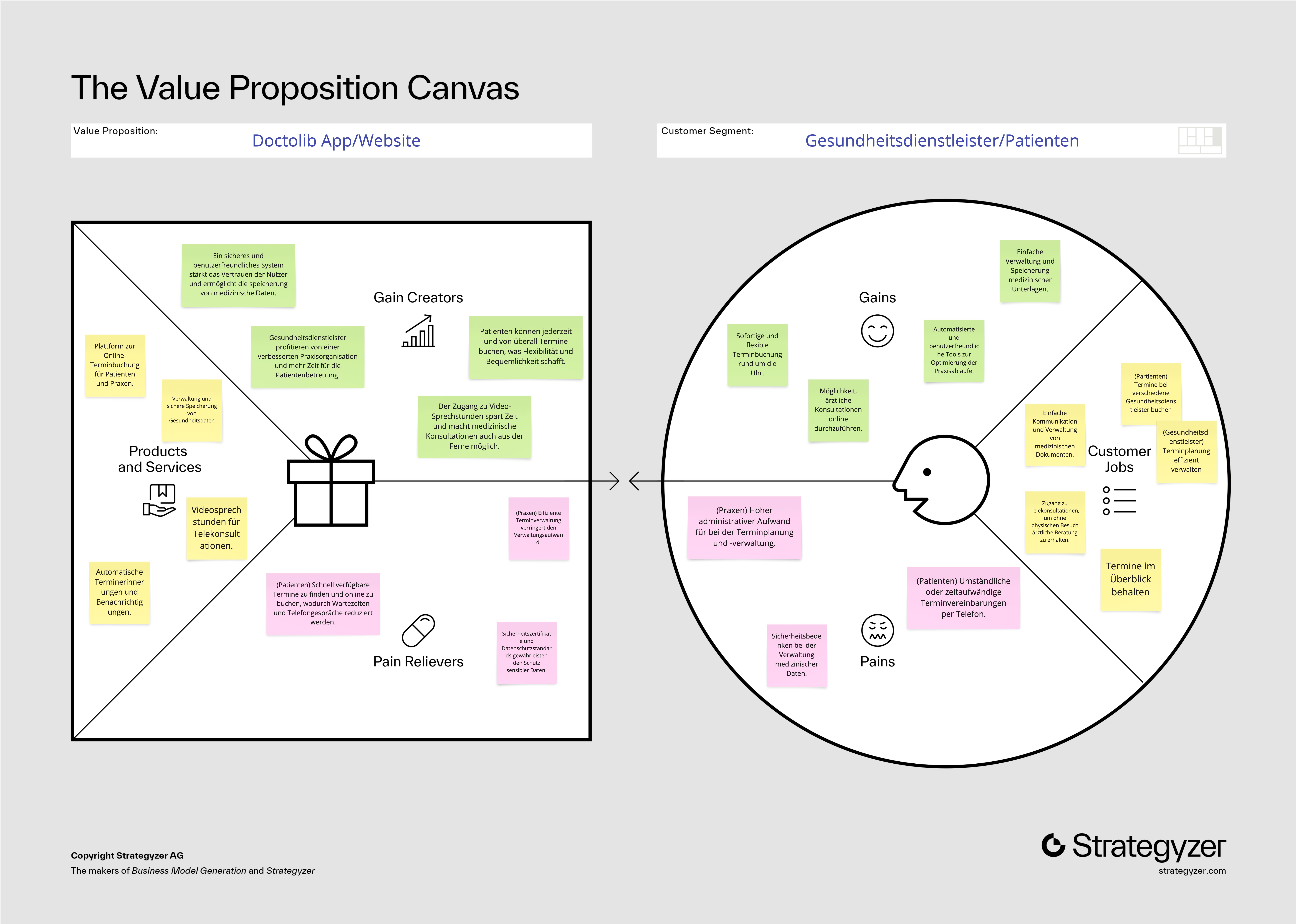Doctolib: Business Model and Value Proposition Analysis
Project Overview
This project focused on analyzing and structuring Doctolib’s business model and customer value proposition using public information and independent research. Doctolib is a digital health platform offering appointment scheduling, teleconsultations, and secure data management for patients and healthcare providers.
Based on external sources, I created a Business Model Canvas (BMC) and a Value Proposition Canvas (VPC) to understand how the company creates, delivers, and captures value—and how that value could be extended through strategic initiatives. The work involved identifying patterns, mapping relationships, and critically assessing both user needs and market positioning.
Business Model Canvas
Using the BMC framework, I reconstructed Doctolib’s business model by mapping its components and how they interact. I focused on two core customer segments: patients and medical professionals, and analyzed how the platform enables efficiency, trust, and accessibility in healthcare.
Key elements included:
– Value Propositions: Flexible scheduling, secure health data, reduced admin workload
– Channels: Mobile app, website, SEO, strategic partnerships, and social media
– Key Activities: Platform development, user support, compliance with data protection laws
– Revenue Streams: Monthly subscriptions paid by doctors and healthcare institutions
– Cost Structure: Tech infrastructure, staffing, marketing, and regulatory compliance
– Key Partners: Hospitals, Aaron.AI (for AI-based phone automation), ADAC, and investment firms like Eurazeo and General Atlantic
The analysis showed how Doctolib combines operational excellence with a scalable service offering while maintaining trust through security and usability.
Value Proposition Canvas
I used the VPC to explore how Doctolib delivers concrete value to both target groups. The canvas revealed how the company addresses specific pain points and goals in healthcare communication and logistics.
For patients:
– Jobs: Book appointments, consult doctors online, store and manage documents
– Pains: Long hold times, scheduling inflexibility, data security concerns
– Gains: 24/7 access, reduced waiting time, full control of health records
For healthcare providers:
– Jobs: Automate scheduling, improve communication, increase efficiency
– Pains: High admin workload, missed appointments, outdated systems
– Gains: More time for patients, fewer no-shows, modern practice image
The analysis also highlighted how Doctolib’s design, automation tools, and focus on privacy contribute to a strong, trust-based user experience.
Strategic Opportunities
Based on the business and customer analysis, I outlined several opportunities to strengthen and expand Doctolib’s offering:
– Enhance AI-driven automation (building on Aaron.AI integrations)
– Deepen integration with existing healthcare IT systems
– Position Doctolib as a secure platform through transparency and certification
– Expand the ecosystem through new partnerships and tailored features for clinics
These steps could help the platform scale further without compromising its core values of accessibility, security, and simplicity.



